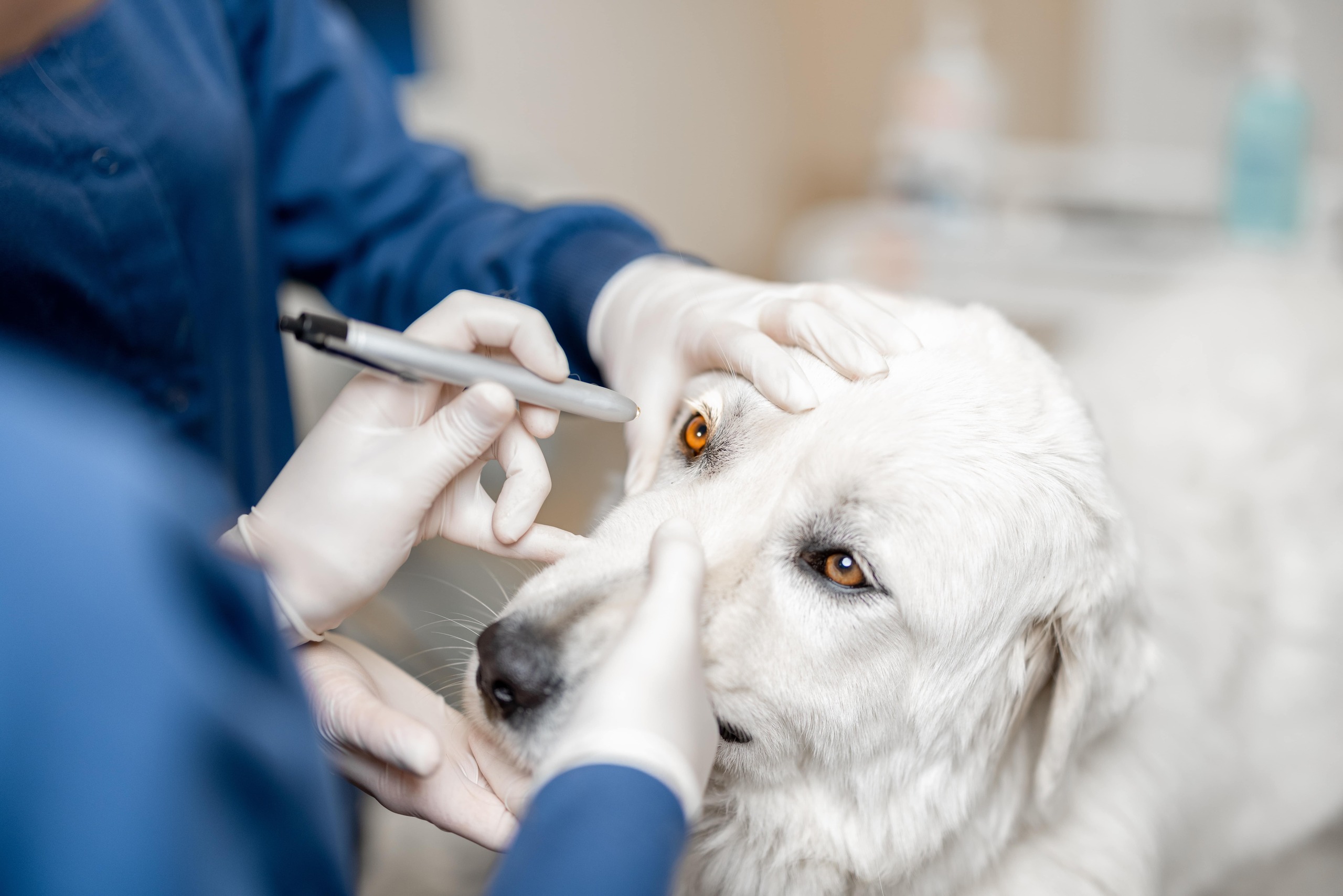Making Pet Eye Care a Priority

Just like humans, our furry companions can develop eye diseases, infections, and other conditions requiring care. At Trail Pet Hospital in Dallas, TX, we emphasize the importance of healthy eyes and good vision for a pet’s overall well-being and quality of life. Dr. Suh and our dedicated team are fully prepared to provide the best possible care for your furry family member.
What Are the Symptoms of Eye Problems?
The following are the most common symptoms of eye problems in pets:
- Excessive redness, tearing, or discharge
- Inflammation around the eye
- Irritation or pawing at the eyes
- Sensitivity to light
- Pupil distortion
- A visible eye scratch or injury
- Squinting or excessive blinking
- Cloudiness or a visible film over the eyes
- Bumping into objects
- Difficulty navigating familiar surroundings
If you see any of these symptoms or have any concerns, contact our team at Trail Pet Hospital for immediate care.
What Are Common Eye Problems in Pets?
The following are some of the most common eye problems in pets:
Glaucoma: This painful condition usually develops when eye fluids don’t drain correctly, causing pressure to build up in and around the eyes. Signs of glaucoma include redness, pain, cloudy eyes, and a dilated pupil. Without treatment, glaucoma can damage the optic nerve, leading to complications and even blindness.
Cataracts: As the years go by, the eye lens can become cloudy, leading to a gradual loss of vision. Aside from aging, risk factors for cataracts include diabetes or injury to the eye. Symptoms may include cloudy eyes, changes in eye color, and difficulty seeing in dim lighting.
Conjunctivitis: Like humans, pets can develop conjunctivitis, also known as pink eye. Symptoms include redness, inflammation, and discharge. Conjunctivitis is highly contagious and can even spread to humans, so be sure to wash your hands well after handling your pet. It’s important to seek veterinary care, which usually involves antibiotics, eye drops, or ointments.
Cherry Eye: This condition primarily affects dogs, which have three eyelids, the third of which is located in the inner corner of the eye. Cherry eye develops when the third eyelid prolapses, leading to a swollen, red, or pink lump in the lower eyelid that resembles a cherry.
Ectropion: This common eye condition is characterized by a lower eyelid sagging or turning outward, exposing the sensitive tissue lining the inside of the eyelid. This can cause irritation and inflammation and leave the eye prone to infection.
Dry Eye Syndrome: Dry eye occurs when the tear ducts fail to produce sufficient tears to lubricate the eyes and keep them clear of dust and debris. Symptoms of dry eye often include redness, squinting, eye pawing, and discharge.
Corneal Ulcers: These injuries to the eye’s outer layer can result in redness, tearing, and eye rubbing. Corneal ulcers usually result from chronic dry eyes or trauma, and without proper treatment, they can worsen and cause a range of complications.
The Trail Pet Hospital Difference
At Trail Pet Hospital, we are committed to providing exceptional care for your furry companion. We offer cutting-edge technology, including the Tono-Pen, which accurately measures intraocular pressure to help diagnose conditions like glaucoma. We also assess tear production to diagnose and treat conditions like dry eye.
We offer a range of treatments to address your pet’s unique needs and promote their eye health. Here’s a look at some of our services:
- Medicated Eye Drops and Ointments: Eye infections, corneal ulcers, and other conditions may require eye drops or ointments to promote healing.
- Anti-Inflammatories: Topical or systemic anti-inflammatories can help relieve discomfort, reduce swelling, and promote healing.
- Tear Stimulants or Eye Lubricants: We may recommend artificial tears, ointment, or other medication to combat dry eye syndrome.
- Surgical Care: We offer surgical options, including ectropion surgery to correct lower eyelid problems or enucleation to remove severely damaged eyes.
Pet Eye Care Near Me in Dallas, TX
If you see signs of eye problems, don’t wait. The sooner you seek veterinary care, the better the outcomes for your furry companion. Dr. Suh and our dedicated team at Trail Pet Hospital will evaluate your pet’s needs and recommend prompt treatment to avoid complications. You can always expect the highest quality care for your beloved pet. We invite you to call us at 972-629-9766 to schedule an appointment or request one online today!
